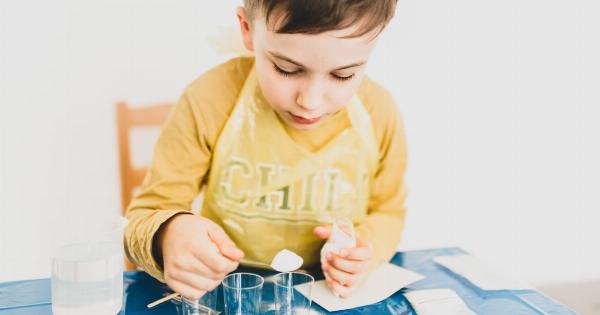Constipation is a common digestive problem that affects people of all ages, including children. It occurs when a child has difficulty passing stools or has infrequent bowel movements.
This can cause discomfort and can be a source of stress for both the child and the parents.
Causes of Constipation in Kids
There are several factors that can contribute to constipation in children. These include:.
Dietary Factors
A child’s diet plays a crucial role in their digestive health. A diet that is low in fiber and fluids can lead to constipation. Not consuming enough fruits, vegetables, and whole grains can result in hard and dry stools.
Additionally, dehydration can make it harder for stool to pass through the intestines, leading to constipation.
Lack of Physical Activity
Inadequate physical activity can contribute to constipation in kids. Regular movement and exercise help stimulate bowel movements and promote a healthy digestive system.
Sedentary behavior, such as excessive screen time, can reduce physical activity levels and increase the risk of constipation.
Problems with the Digestive System
Some children may have underlying digestive system issues that can contribute to constipation.
These can include problems like a structural abnormality in the intestines, an improperly functioning colon, or abnormalities in the muscles involved in bowel movements.
Emotional Factors
Emotional stress or anxiety can also impact a child’s digestive system. Stress can affect the normal functioning of the gut, leading to constipation.
Factors such as starting school, changes in routine, or emotional upheaval can contribute to constipation in some children.
Common Remedies for Constipation in Kids
Fortunately, there are several remedies and lifestyle changes that can help alleviate constipation in children. These include:.
1. Increase Fiber Intake
One of the most effective ways to relieve constipation is to increase the fiber intake in a child’s diet. Fiber helps soften the stool and promotes regular bowel movements.
Encourage your child to consume more fruits, vegetables, whole grains, and legumes.
2. Ensure an Adequate Fluid Intake
Make sure your child drinks enough fluids throughout the day. Water and natural fruit juices can help soften the stool and facilitate easier passage through the intestines. Avoid excessive intake of sugary drinks, as they can worsen constipation.
3. Encourage Regular Physical Activity
Encourage your child to engage in regular physical activity or exercise. Regular movement helps stimulate bowel movements and keep the digestive system healthy. Encourage activities such as running, swimming, bicycling, or even playing at the park.
4. Establish a Routine
Establishing a regular bathroom routine can help train the body to have predictable bowel movements. Encourage your child to use the bathroom at the same time each day, preferably after meals, as this is when the digestive system is most active.
5. Offer Prunes or Prune Juice
Prunes and prune juice have natural laxative properties and can help relieve constipation. You can offer your child a small amount of prunes or prune juice as a natural remedy.
6. Consider Probiotics
Probiotics are beneficial bacteria that can help improve gut health. They can be found in certain foods or taken as supplements. Probiotics can help regulate bowel movements and alleviate constipation in some cases.
7. Avoid Processed and Fast Foods
Processed and fast foods are often low in fiber and high in unhealthy fats, which can contribute to constipation. Limit the intake of these foods and focus on providing a balanced diet that includes plenty of fresh and whole foods.
8. Serve Smaller, More Frequent Meals
Instead of serving large meals, try to serve smaller and more frequent meals throughout the day. This can help prevent overeating and promote a better digestive process.
9. Encourage Relaxation Techniques
Incorporate relaxation techniques into your child’s daily routine to help manage stress, as stress can contribute to constipation. Activities such as deep breathing exercises, gentle yoga, or reading before bedtime can be helpful.
10. Consult a Healthcare Professional
If home remedies and lifestyle changes do not provide relief from constipation, it is best to consult a healthcare professional.
They can determine if there are any underlying medical conditions causing the constipation and provide appropriate treatment.






























